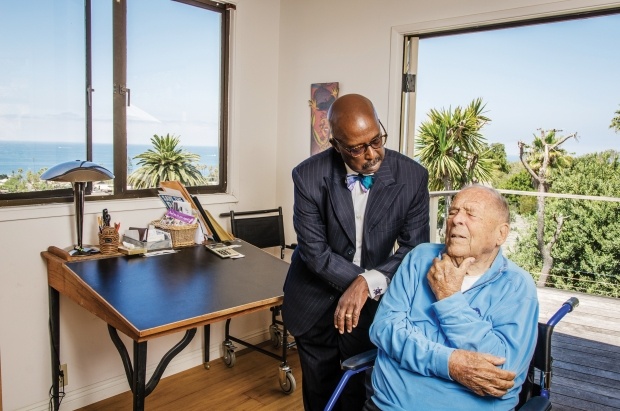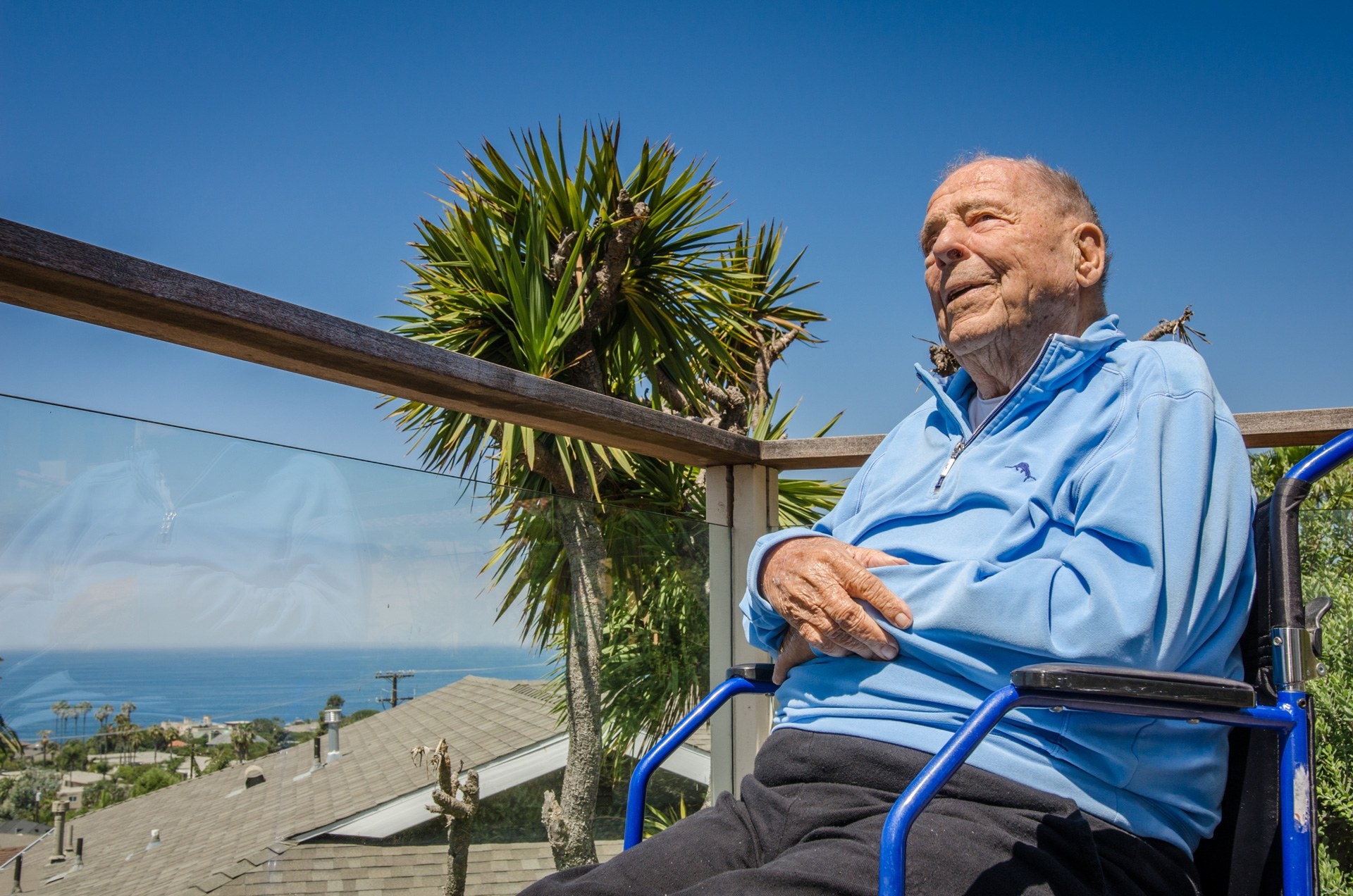Signs of Paul Egly’s days as a judge and college dean dot the decor of his Laguna Beach home. Editorial cartoons from the Los Angeles Times depict his 1970s fight for desegregation in Los Angeles public schools.
Among his possessions are pictures of himself teaching law students and an honorary degree from the University of La Verne.
Some memories are more difficult for the 95-year-old to recollect.
But his memory of wanting to bring a fully-accredited law school to Inland Southern California has never faded.
The news finally came after 46 years.
The American Bar Association had granted the University of La Verne College of Law full accreditation.
Egly’s wife Jane received the March 14 call from Dean Gilbert Holmes: “I was thrilled,” she said.
Holmes felt the same way: “It was a great pleasure, personally, and professionally, to facilitate the fulfillment of Paul’s dream.”
Today, Egly jokes the journey began as a simple exchange with then-University of La Verne President Leland Newcomer in 1969. “I went to him and asked, ‘Do you want a law school?’ He said, ‘Yeah, I want a law school, Paul.'”

The La Verne College Law Center opened in 1970 with 84 students. It offered night classes in Miller Hall’s basement, earning state accreditation a year later. Egly tried to pursue full accreditation then, but the school needed its own building and library.
He raised money, even having law students pledge funds to be repaid following graduation. The school moved into the Hoover Building in 1971, holding day and evening classes out of four classrooms.
When Randy Rubin, associate dean for academic affairs and professor of law, came to the university in the 1990s, he said many students were professionals or members of law enforcement seeking a career change.
“Going to the closest law school was important to them,” Rubin said.
The university added a second location in Woodland Hills in 1984, gaining 615 alumni in the 12 years it existed. In 2001, the law school moved to a 60,000 square-foot building in Ontario.
“Things were better,” Egly said. “It looked like a law school.”
Alan Blackman ’01, Deputy City Attorney for Los Angeles, remembers the transition as a student.
“The excitement for the potential growth of the law school was palpable,” Blackman said. “The students and faculty appeared to be energized and ready to take on the world.”
Holmes became dean in 2013, having just four years to work with his staff to gain full accreditation before provisional accreditation expired.
He worked closely with the College of Law Subcommittee, led by Board of Trustees member Emmett Terrell ’70 and including trustees Luis Faura ’89, Michael Abraham, Steve Reenders ’73, Valerie Romero ’00, Wendy Lau ’98, William Hawkins ’96, advisory member Dennis Alekel, and University of La Verne President Devorah Lieberman.
The college adopted an affordable tuition model and innovative curriculum that featured academic skill building, practical training, and bar readiness.
The changes, along with the law school’s bar exam pass rate, convinced the ABA to fully-approve the school.
Though Egly’s dream is now realized, Holmes says the College of Law’s story is not over.
“I see the University of La Verne’s school as providing the ultimate narrative about legal education,” Holmes said.
